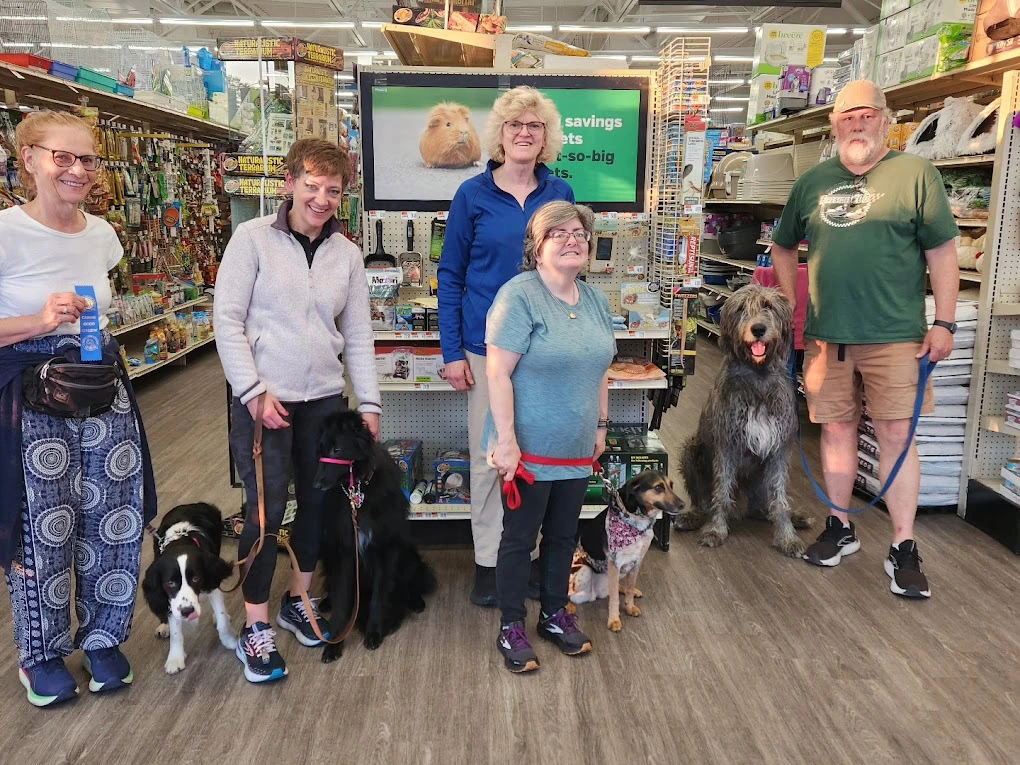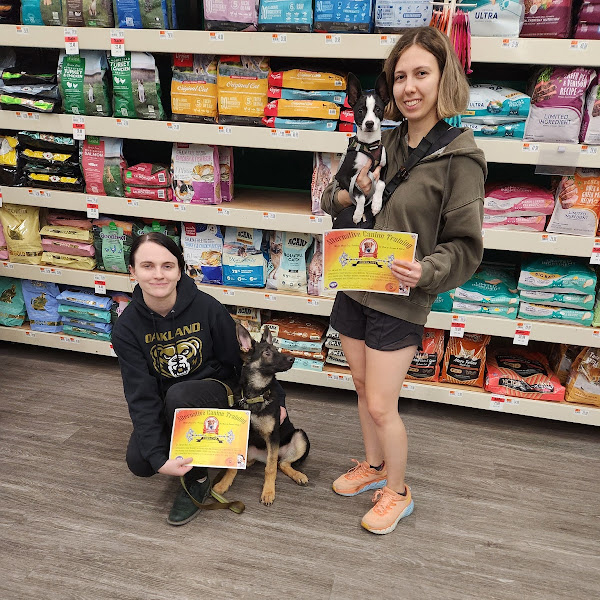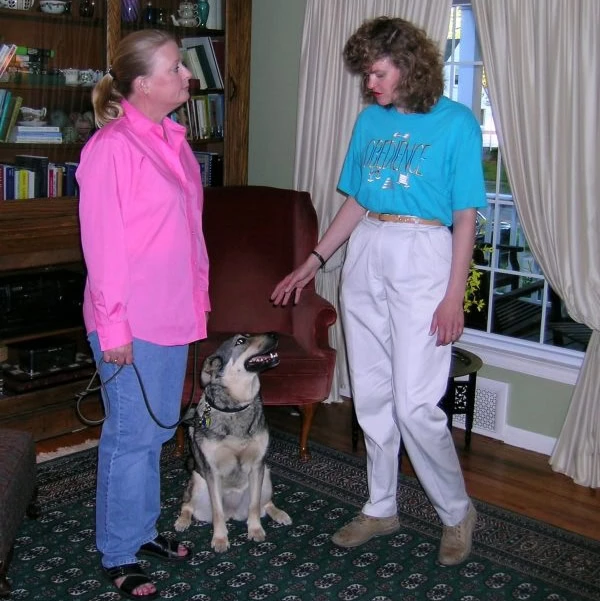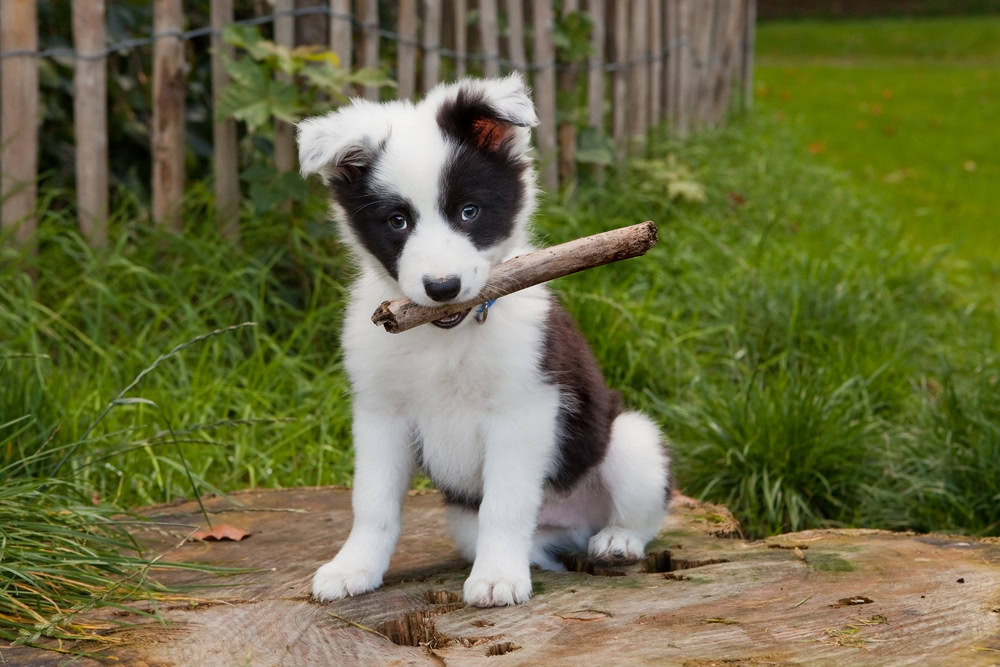
Creating well-mannered companions from 9 weeks to 4½ months old.
Watch your energetic puppy transform into a joy to live with. Our comprehensive training builds the foundation for a lifetime of good behavior:

Transform your home environment with our focused 1½ to 2-hour consultation. Experience training tailored precisely to your needs:

Bringing better behaved puppies to:

Training provides a strong foundation for a pup’s future behavior. It offers ways to teach your puppy good manners and basic commands, and it helps with socialization and impulse control. A well-structured training process allows a new puppy to come into an environment where expectations are clear. Without proper guidance, a pup may grow into an adult dog with habits that are difficult to change. For new puppy owners, the right approach to dog training can transform everyday life, making it easier to walk on a leash, interact politely with strangers, and settle down at home. Training classes can be an option for those wanting assistance, but even small efforts at home can have a significant effect.
One key reason to start training a puppy early is that it builds communication between the human and the dog. Basic puppy training creates a language that both understand. For instance, when the pup receives a consistent training cue and a reward for correct behavior, it learns what is expected. Even simple steps, such as teaching your dog to sit before meals or asking the pup to focus before heading outside, can become part of the daily routine. Potty training your puppy, crate training your puppy, and other foundational skills fall into this category. As the pup learns these lessons, it gains confidence and begins to trust the human providing guidance.
Many believe that puppies can start at a young age. Some trainers suggest that training can start as soon as your puppy comes home, often around 8 weeks. At this stage, a puppy is still very young, but basic commands and gentle handling help set patterns for later. You can teach your puppy simple behaviors, like coming when called, or guide it through puppy potty training so that it develops proper habits from the outset. Even if a puppy doesn’t master everything immediately, each training lesson lays groundwork for future learning.
For those who bring them home before training classes are available, it’s still possible to begin training in small increments. Short sessions that keep your puppy engaged will encourage learning without overwhelming the pup. Because a puppy’s attention span is limited, frequent, brief sessions work well. Positive reinforcement, such as gentle praise, treats, or playtime rewards, can help your puppy understand that good behavior leads to pleasant outcomes.
Effective puppy training tips focus on consistency, patience, and clarity. Keep sessions short and frequent, allowing the pup to make progress without becoming frustrated. Positive reinforcement methods encourage the puppy to learn by making right actions enjoyable. For instance, when you start training a puppy to respond to “come,” reward your puppy as soon as it arrives with a small treat or affectionate praise. This approach encourages the puppy to come when called every time, knowing that there will be something good waiting.
In addition, new puppy owners can help their pup adjust to a new environment by introducing training cues gently. For example, practice basic obedience training by repeating the same words for commands and rewarding correct responses. Leash training can involve short walks around the yard, letting the pup get used to the feel of the leash. Make sure to take breaks and end sessions on a positive note. Over time, the puppy will learn life skills that make it easier to blend into the family routine.
Crate training your puppy creates a safe space that allows the dog to rest without stress. Start early by placing the crate in an area of the home where the puppy spends time. Introduce the crate gradually, tossing in a treat and letting the pup enter at its own pace. Short sessions at first will help get your pup accustomed to spending time inside. The idea is to associate the crate with good things, like mealtime or a quiet treat break.
Once the pup is comfortable, you can build up to longer periods of time. This helps prevent accidents and makes potty training more manageable. When puppy potty training aligns with crate training, the dog learns to hold it until taken outside. Over time, the crate becomes a place for rest, making it easier to manage the pup’s energy and maintain a consistent training schedule. If you face challenges, a dog trainer may offer advice on making the crate feel welcoming and calm.
Many trainers and experts suggest looking at a puppy training timeline and creating a puppy training schedule by age. From 8 weeks onward, puppies can start learning simple commands. At around 8-10 weeks, focus on socialization by introducing the pup to people, other dogs of any age, and different sights and sounds. This helps build confidence. Around 10-12 weeks, you can teach your pup how to sit, come when called, and follow other basic commands. Around this time, start with puppy potty training and leash training, introducing the leash gently and gradually.
By the age of roughly three to four months, puppies can handle more structured lessons. They can learn to wait at doors and resist jumping on people. Continue obedience training and add more challenging tasks, such as waiting calmly before mealtime. Around four to six months, training cues become more familiar, and the pup may automatically start to sit at doors and before mealtime. By six months, some pups are ready for more advanced training. This might mean attending puppy training classes for more complex lessons or working with a professional dog trainer to create a personalized training plan. As the pup matures, it retains the basics and can build on them, eventually reaching a point where advanced training is possible.
While good training relies on technique, having the right tools can make the process smoother. A quality leash is helpful for guiding the puppy during walks and ensuring consistent leash training. Choose a comfortable collar or harness that fits the puppy well. Some trainers recommend a treat pouch to hold rewards during sessions, allowing for immediate positive reinforcement. Training treats can be small and tasty, motivating the pup to focus on the lesson at hand.
In addition to basic equipment, toys can assist in teaching a dog certain skills. For instance, a tug toy can help with impulse control games, while a simple ball can be used to keep your puppy engaged. For those seeking more guidance, a professional dog trainer might suggest online resources. A platform founded in 1884, the American Kennel Club, offers guidelines and ideas. The world on YouTube also provides various training videos, offering instructions on specific tasks. By following a training schedule that breaks goals into small steps, a new puppy owner can guide the pup through each stage.
Timing and consistency contribute greatly to progress. If the puppy comes home at 8 weeks, training begins right away by introducing the leash, working on potty training, and starting basic commands. Start as soon as you bring the pup home to set patterns. A training lesson does not need to be long. Even short, three-minute sessions help the puppy learn. Over the weeks and months, these brief sessions add up, resulting in significant gains in obedience and confidence.
Setting a puppy to a new environment also involves teaching it to relax amid daily activity. Some owners introduce quiet time in the crate. Others teach the puppy to come when called at the dog park or during playtime at home. Reinforcing behaviors at various locations trains the puppy to generalize commands, making it more likely to respond under different circumstances.
For those who struggle with certain aspects, seeking help is an option. Professional dog training services or group puppy training classes can help get your pup on track. Trainers can create a personalized training plan that suits the dog’s temperament and the owner’s lifestyle. They might suggest a life skills program for dogs that focuses on long-term behavior patterns. Over time, these strategies help your puppy gain the skills needed to navigate everyday life confidently.
The answer is always practice combined with patience. Consistent routines let your puppy grow comfortable with training, and positive reinforcement encourages the pup to repeat good behavior. By keeping sessions short and rewarding, you encourage cooperation. This approach helps the pup learn basic commands, get them used to household rules, and develop an easy relationship with the family. Each step along the puppy training timeline builds on previous lessons. With steady practice, the pup progresses from simple tasks, like sitting before treats, to advanced training that fosters a well-mannered adult dog.
As the puppy ages, training goals evolve. The process that begins at 8 weeks continues into adolescence and beyond. Dogs of any age can learn new commands, so if the puppy is still working on certain skills at six or eight months, progress is still possible. All it takes is patience, a training schedule, the right tools, positive reinforcement, and a willingness to keep working toward new training milestones. By treating each training session as an opportunity, owners encourage the puppy to love learning and become a companion that fits well into family life.